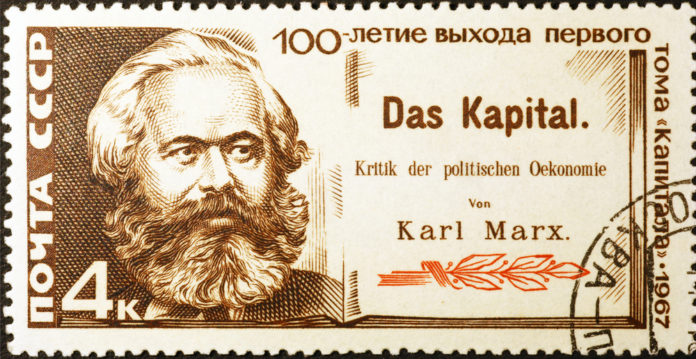In this case, GAO had to answer an esoteric question concerning the taxonomy of academic disciplines. The solicitation required that a key program manager have a degree in computer science, engineering, or business. The awardee’s proposed program manager had a degree in economics. The protester argued economics was not a degree listed in the solicitation. GAO, however, found that a business degree encompasses a variety of subjects, including, management, finance, accounting, and economics. In GAO’s view, an economics degree qualified as a business degree.
TekSynap Corporation; Candor Solutions, LLC, GAO B-420856 et al.
Background
The Department of Justice (DOJ) issued a solicitation under the Chief Information Office Solutions and Partners (CIO-SP3) government-wide acquisition contract. The solicitation sought to award a task order for information technology support services. DOJ received ten proposals, including offers from TekSynap Corporation, Candor Solutions, and Inserso Corporation. DOJ awarded the contract to Inserso. TekSynap and Candor protested.
Analysis
Weakness Assessed to Candor
DOJ assigned to weakness to Candor under the technical factor for failing to provide a clear approach to implementing and executing ad-hoc tasks. Candor objected to this weakness, arguing that the solicitation did not include specific tasks. In any event, Candor maintained, it had proposed a reasonably extensive implementation strategy.
GAO wasn’t persuaded. While the solicitation didn’t include specific tasks, it did include several ad hoc tasks, and offerors were expected to describe their strategies to execute these tasks. What’s more, GAO continued, Candor had not adequately explained how these ad hoc tasks would be completed.
Strength Not Assessed to Candor
Candor further alleged that it should have received a strength for its virtual desktop experience. Candor contended it managed over 2,000 virtual desktops, which exceeded the solicitation’s estimate of 1,000-1,300 desktops. But GAO found DOJ had reasonably determined that experience with 2,000 desktops was not that impressive. The technology architecture for supporting 2,000 desktops is not that different from supporting 1,300 desktops.
Business Degree
TekSynap argued that Inserso should have been rated as unacceptable because its proposed key program manager did not meet the solicitation’s education requirements. The solicitation required the program manager to have a Bachelor’s degree in computer science, engineering, or business. Inserso’s program manager had a degree in economics. TekSynap argued that economics was not one of the acceptable degrees listed in the solicitation.
But GAO found that DOJ had reasonably determined that economics is a type of business degree. There are several types of business degrees, including business administration, managements, accounting, economics, and finance. Indeed, economics is often offered as a major within a university’s business program.
TekSynap Program Manager
TekSynap complained that DOJ had only credited its program manager with 8 years of experience without crediting his 22 years of experience in the Army. GAO, however, found that DOJ had reasonably credited TekSynap’s program manager. While the program manager had 22 years of experience in the Army, it wasn’t clear from his resume how much of that experience had been devoted to program management.
Past Performance
DOJ found that Inserso’s past performance was superior to TekSynap’s due to the magnitude of its past contracts. TekSynap argued that the agency had erred by considering the relevance of past performance in terms of FTEs instead of dollar value. But GAO found no error. The solicitation clearly stated the relevance of performance would be determined by the number of FTEs.
Best-Value Tradeoff
Candor objected to the best value-tradeoff, arguing DOJ had ignored weaknesses assessed to Inserso. GAO, however, found that the agency had not ignored the weaknesses. Rather, DOJ had reasonably determined that Inserso’s experience mitigated the risks posed by those weaknesses.
TekSynap asserted DOJ applied unstated criteria in making the best value-tradeoff. TekSynap noted DOJ credited Inserso for innovations even though the solicitation did not identify innovations as a matter of consideration. GAO didn’t believe DOJ had applied unstated criteria. An agency may properly consider innovations or creative approaches to distinguish between proposals.
TekSynap is represented by Elizabeth N. Jochum, Michael J. Slattery, and Samrath Barot of Blank Rome LLP. Candor is represented by Jon D. Levin, W. Brad English, Emily Chancey, and Nicholas P. Greer of Maynard Cooper & Gale. The intervenor, Inserso, is represented Leslie Edelstein, Dawn Stern, Richard P. Rector, and David R. Lacker of DLA Piper. The agency is represented by Jason P. Cooley, Christopher Henshaw, and Nathaniel Kenser of the Department of Justice. GAO attorneys Mary G. Curcio and John Sorrenti participated in the preparation of the decision.
–Case summary by Craig LaChance, Senior Editor





